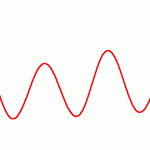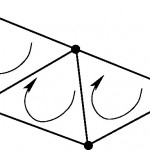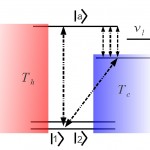Statistical mechanics of small nonequilirbium systems
Our research focuses on small systems which are driven out of thermal equilibrium. Our understanding of out of equilibrium systems is limited in comparison to the well developed theory for systems in thermal equilibrium. This means that many basic questions are open, and sometimes it is not even clear what are the best questions to ask.
Nevertheless, in recent years research on nonequilibrium small systems flourished due to a combination of experimental and theoretical advancements. Current technology enables researcher to control and manipulate small systems and study not only their typical behaviour but also their fluctuations. This has led to investigations of biological and artificial molecular machines, colloidal particles in laser traps and other small systems which may act as thermodynamical engines. In parallel our theoretical understanding of such systems benefited from the discovery of fluctuation theorems, a group of relations which typically compare probabilities of rare events related by time reversal. Fluctuation theorems are interesting because they are valid for systems driven arbitrarily away from equilibrium. They also hint that the fluctuations of small systems encode valuable information. This means that this is an exciting time to be interested in the dynamics of small out of equilibrium systems. A more specific description of some of the topics we currently explore can be found below.
 Properties of stochastic pumps
Properties of stochastic pumps
Our bodies are teeming with molecules which operate as machines. Typically such molecular motors are driven by thermodynamical forces which do not change in time (compared to the typical time it takes for the motor to complete a cycle). Many research groups aim to build artificial molecular machines, which can be driven in a variety of ways. Stochastic pumps are models of such systems which are driven by periodic variation of externally controlled parameters. Our research aims to understand the thermodynamical properties of such systems and to compare and contrast them to systems driven by constant forces.
Part of our work focuses on fundamental questions related to fluctuation theorems. For instance, will we find a nontrivial fluctuation theorem for a system have degrees of freedom which evolves on different timescales where only the slow degrees of freedom can be observed. It turns out that in such cases an approximate fluctuation theorem holds for a coarse-grained entropy production which is defined using the slow part of the system.
Statistical mechanics of small quantum systems
Most of the work on thermodynamics of small systems was derived for classical models. It is very interesting to see how purely quantum effects such as coherence or spontaneous emission affect the thermodynamics small quantum systems. Similar questions are commonly investigated in the field of quantum optics, but the role of fluctuations is rarely studied. Recently we investigated a model for a quantum heat engine where coherence was previously shown to affect its output. We have shown that while coherence can change the distribution of heat exchanges, a coherence independent fluctuation theorem still holds. An interesting combination of results. Our research in this direction will explore very basic questions such as the interplay between information and thermodynamics.


